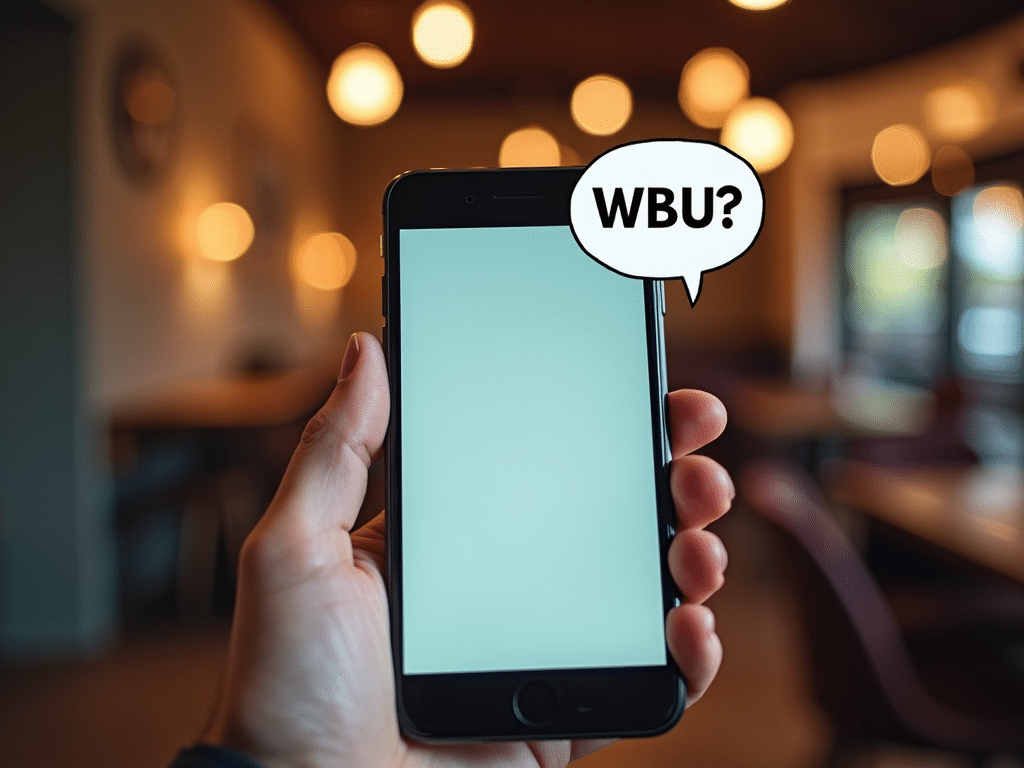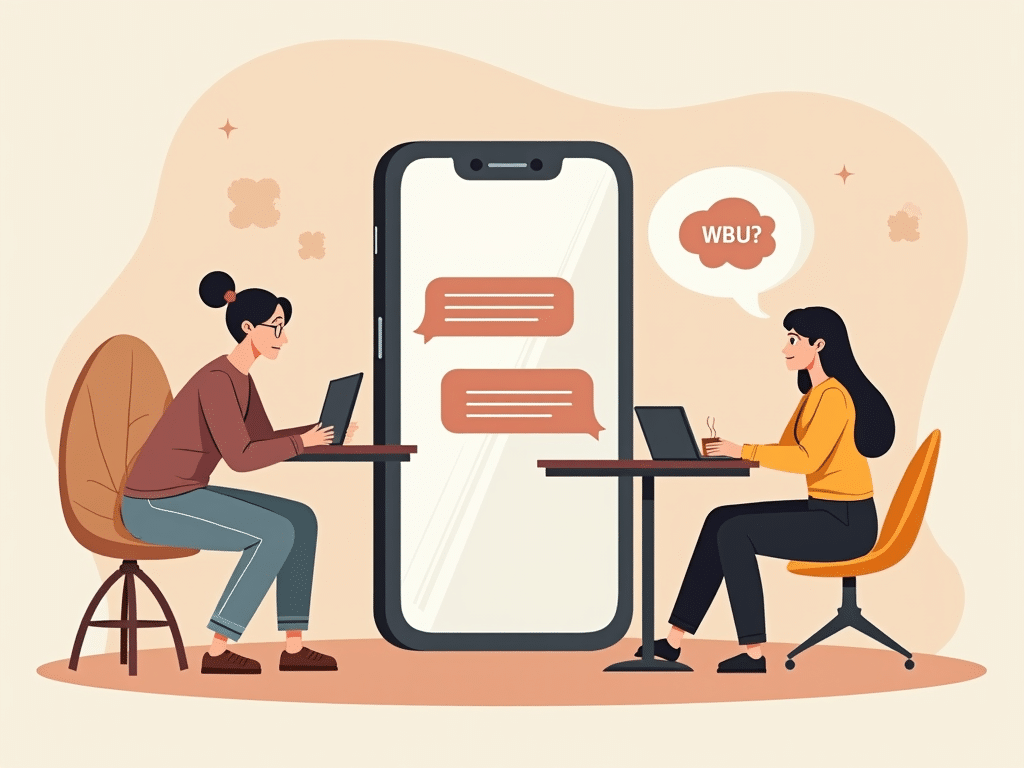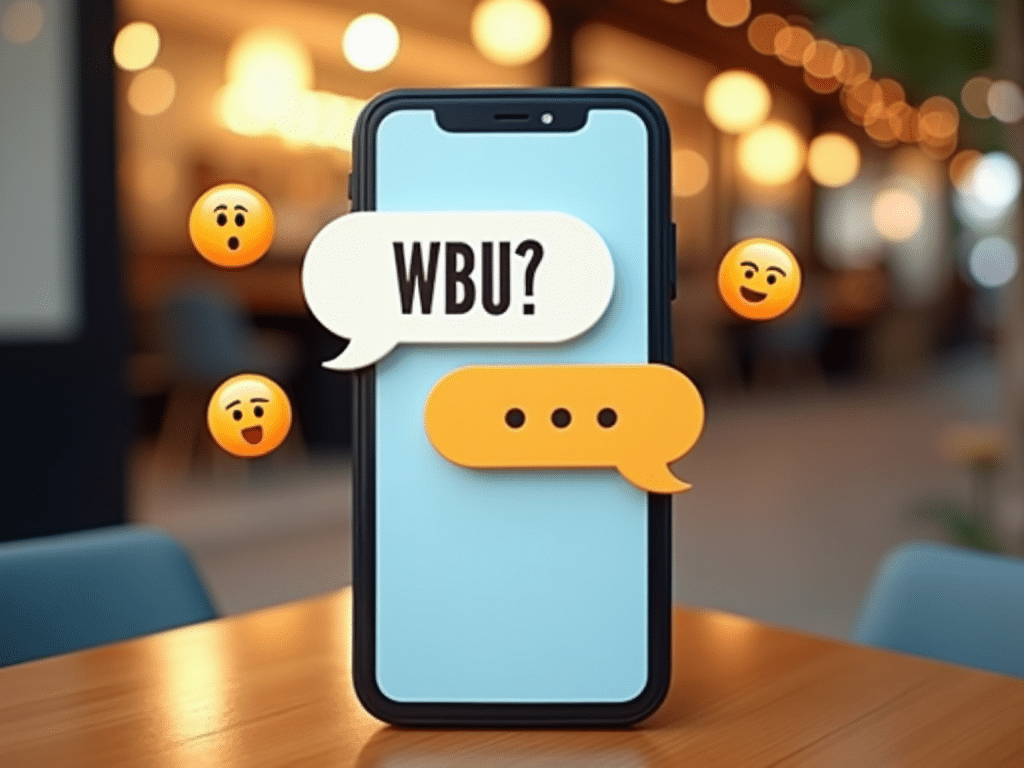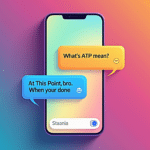In the fast-paced world of texting and social media, abbreviations have become our digital shorthand. One acronym you’ve probably seen popping up in your chats is “WBU.” But what does WBU mean, and how can you use it like a pro? Let’s dive into the world of this tiny but mighty texting titan!
| Key Takeaways |
|---|
| WBU stands for “What about you?” or “What ’bout you?” |
| It’s commonly used in texting and social media to show interest |
| WBU is informal and best for casual conversations |
| Similar to HBU but with subtle differences in usage |
| Understanding WBU can improve your digital communication skills |

What Does WBU Mean?
WBU is an acronym that stands for “What about you?” or “What ’bout you?” It’s the texting equivalent of tossing the conversational ball back to your chat partner. When you use WBU, you’re essentially saying, “Hey, I’ve shared my thoughts or experiences, now I want to hear yours!”
WBU Meaning in Text
In text conversations, WBU serves as a friendly prompt to keep the dialogue flowing. It shows that you’re interested in the other person’s perspective or situation. For example:
- “I’m planning to binge-watch some shows this weekend. WBU?”
- “This math homework is driving me crazy! WBU?”
Using WBU in your texts is like extending a digital handshake – it’s a simple way to show you care about what the other person has to say.
How to Use WBU Like a Text Ninja
Ready to level up your texting game? Here’s how to wield WBU with precision:
- After sharing information: Use WBU to ask for the other person’s similar experiences.
- “I just finished reading an awesome book. WBU? Read anything good lately?”
- To show genuine interest: Use WBU to express curiosity about the other person’s life.
- “I’m thinking about trying out for the basketball team. WBU? Any sports you’re into?”
- In group chats: Modify WBU to include everyone.
- “I’m definitely going to the concert. WBU guys?”
Remember, WBU is like the secret sauce of casual conversations – use it to add flavor, not to overpower the chat!
WBU Usage Across Platforms
Popularity of WBU Across Different Platforms
WBU vs. HBU: The Texting Showdown
You might be wondering, “What’s the difference between WBU and HBU?” Great question! While they’re similar, there are some subtle differences:
- WBU (What about you?): More open-ended, can be used in various contexts.
- HBU (How about you?): Often used after sharing a specific experience or feeling.
For a deeper dive into the world of texting abbreviations, check out our article on HBU meaning.
When to Use WBU (and When Not To)

WBU is like your favorite comfy t-shirt – perfect for casual hangouts, not so much for formal events. Here’s a quick guide: 👍 Good times to use WBU:
- Texting friends
- Casual social media posts
- Informal online chats
👎 Not-so-good times for WBU:
- Job applications
- Formal emails
- Conversations with teachers or bosses
Pro tip: When in doubt, spell it out! “What about you?” works in almost any situation.
The Impact of WBU on Modern Communication
WBU might seem like just another texting shortcut, but it’s actually changing the way we talk to each other online. Here’s how:
- It’s a conversation starter: WBU encourages back-and-forth dialogue.
- It shows empathy: Using WBU demonstrates that you care about the other person’s perspective.
- It’s efficient: In a world where time is precious, WBU helps us communicate quickly.
Think about it – when was the last time you had a text conversation without some form of “What about you?” It’s become such a natural part of our digital language that we often use it without even thinking.
Responding to WBU: Keep the Conversation Rolling
When someone hits you with a “WBU?”, it’s your time to shine! Here are some tips to keep the chat interesting:
- Be specific: Instead of just saying “Nothing much,” share a detail about your day.
- Ask a follow-up question: This keeps the conversation flowing.
- Use emojis: They can add tone and personality to your response.
For example:
Friend: Just finished my math homework. WBU?
You: Still struggling with mine 😅 Any tips for solving quadratic equations?
WBU Around the World
Believe it or not, WBU has cousins in other languages! Here are a few international variations:
- French: “Et toi?” (And you?)
- Spanish: “¿Y tú?” (And you?)
- German: “Und du?” (And you?)
It’s fascinating to see how different cultures express the same idea. For more on global communication trends, check out our article on international texting etiquette.
WBU Usage by Age Group
Frequency of WBU Usage Across Age Groups
The Future of WBU and Texting Lingo
As our digital communication evolves, so does our language. While WBU is popular now, who knows what new abbreviations we’ll be using in the future? The key is to stay adaptable and keep learning. Remember, language is a tool for connection. Whether you’re using WBU, emoji, or good old-fashioned complete sentences, the goal is to communicate effectively and build relationships.
Conclusion: WBU in Your Texting Toolkit
Now that you’re a WBU expert, you’re ready to use it like a pro in your digital conversations. Remember:
- Use WBU to show interest and keep conversations going
- Keep it casual – save WBU for friends and informal chats
- Respond to WBU with enthusiasm to maintain the dialogue
By mastering the art of WBU, you’re not just learning an abbreviation – you’re enhancing your ability to connect with others in the digital age. So, what do you think about WBU now? Will you be using it more in your texts? WBU? 😉 For more texting tips and tricks, don’t forget to check out our guides on modern texting etiquette and emoji meanings. Happy texting!







